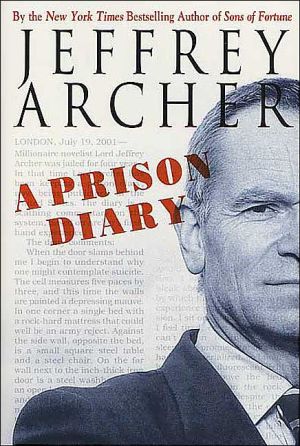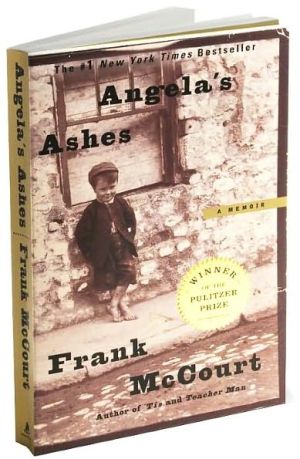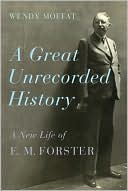Prison Diary
On July 19, 2001, following a conviction for perjury, international bestselling author Jeffrey Archer was sentenced to four years in prison. Prisoner FF8282, as Archer is now known, spent the first three weeks in the notorious HMP Belmarsh, a high-security prison in South London, home to murderers, terrorists and some of Britain's most violent criminals.\ On the last day of the trial, his mother dies, and the world's press accompany him to the funeral. On returning to prison, he's placed on...
Search in google:
On July 19, 2001, following a conviction for perjury, international bestselling author Jeffrey Archer was sentenced to four years in prison. Prisoner FF8282, as Archer is now known, spent the first three weeks in the notorious HMP Belmarsh, a high-security prison in South London, home to murderers, terrorists and some of Britain's most violent criminals.On the last day of the trial, his mother dies, and the world's press accompany him to the funeral. On returning to prison, he's placed on the lifer's wing, where a cellmate sells his story to the tabloids. Prisoners and guards routinely line up outside his cell to ask for his autograph, to write letters, and to seek advice on their appeals.For twenty-two days, Archer was locked in a cell with a murderer and a drug baron. He decided to use that time to write an hour-by-hour diary, detailing the worst three weeks of his life.When A Prison Diary was published in England, it was condemned by the prison authorities, and praised by the critics. The Washington Post Archer is sublimely unaware of his own absurdity. He seems surprised to discover that jails are full of criminals, many of whom take drugs, and that the food isn't quite up to the standards of his favorite London restaurant. After his first shower, he complains that Belmarsh prison doesn't have "quite the same facilities" as "my apartment on the Albert Embankment." Who would have guessed it? During his glory days, invitations to Archer's parties were famous for specifying that Krug champagne would be served, and even in jail he can't resist the allure of brand-names. "I start off with something called Coco Pops," he writes of one breakfast. "Not bad, but it's still almost impossible to beat good old Kellogg's cornflakes." — Francis Wheen
HEAVEN (Day 89: Monday 15 October 2001)\ 2.30 pm\ The signpost announces North Sea Camp, one mile. As we approach the entrance to the prison, the first thing that strikes me is that there are no electric gates, no high walls and no razor wire.\ I am released from my sweat box and walk into reception, where I am greeted by an officer. Mr Daff has a jolly smile and a military air. He promises that after Wayland, this will be more like Butlins. ‘In fact,’ he adds, ‘there’s a Butlins just up the road in Skegness. The only difference is, they’ve got a wall around them.’\ Here, Mr Daff explains, the walls are replaced by roll-calls—7.30 am, 11.45 am, 3.30 pm, 8.15 pm and 10.00 pm, when I must present myself to the spur office: a whole new regime to become accustomed to.\ While Mr Daff completes the paperwork, I unpack my HMP plastic bags. He barks that I will only be allowed to wear prison garb, so all my T-shirts are taken away and placed in a possessions box marked ARCHER FF8282.\ Dean, a prison orderly helps me. Once all my belongings have been checked, he escorts me to my room—please note, room, not cell. At NSC, prisoners have their own key, and there are no bars on the windows. So far so good.\ However, I’m back to sharing with another prisoner. My room-mate is David. He doesn’t turn the music down when I walk in, and a rolled-up cigarette doesn’t leave his mouth. As I make my bed, David tells me that he’s a lifer, whose original tariff was fifteen years. So far, he’s served twenty-one because he’s still considered a risk to the public, despite being in a D-cat prison. His original crime was murder—an attack on a waiter who leered at his wife.\ 4.00 pm\ Dean (reception orderly) informs me that Mr Berlyn, one of the governors, wants to see me. He accompanies me to the governor’s Portakabin, where I am once again welcomed with a warm smile. After a preliminary chat, Mr Berlyn says that he plans to place me in the education department. The governor then talks about the problem of NSC’s being an open prison, and how they hope to handle the press. He ends by saying his door is always open to any prisoner should I need any help or assistance.\ 5.00 pm\ Dean takes me off to supper in the canteen. The food looks far better than Wayland’s, and it is served and eaten in a central hall, rather like at boarding school.\ 6.00 pm\ Write for two hours, and feel exhausted. When I’ve finished, I walk across to join Doug in the hospital. He seems to have all the up-to-date gossip. He’s obviously going to be invaluable as my deep throat. We sit and watch the evening news in comfortable chairs. Dean joins us a few minutes later, despite the fact that he is only hours away from being released. He says that my laundry has already been washed and returned to my room.\ 8.15 pm\ I walk back to the north block and report to the duty officer for roll-call. Mr Hughes wears a peaked cap that resembles Mr Mackay’s in Porridge, and he enjoys the comparison. He comes across as a fierce sergeant major type (twenty years in the army) but within moments I discover he’s a complete softie. The inmates like and admire him; if he says he’ll do something, he does it. If he can’t, he tells you.\ I return to my room and push myself to write for another hour, despite a smoke-filled room and loud music.\ 10.00 pm\ Final roll-call. Fifteen minutes later I’m in bed and fast asleep, oblivious to David’s smoke and music.\ HEAVEN Copyright © 2004 by Jeffrey Archer
\ The Washington PostArcher is sublimely unaware of his own absurdity. He seems surprised to discover that jails are full of criminals, many of whom take drugs, and that the food isn't quite up to the standards of his favorite London restaurant. After his first shower, he complains that Belmarsh prison doesn't have "quite the same facilities" as "my apartment on the Albert Embankment." Who would have guessed it? During his glory days, invitations to Archer's parties were famous for specifying that Krug champagne would be served, and even in jail he can't resist the allure of brand-names. "I start off with something called Coco Pops," he writes of one breakfast. "Not bad, but it's still almost impossible to beat good old Kellogg's cornflakes." — Francis Wheen\ \ \ \ \ Publishers WeeklyConvicted of perjury in 2001, Archer, a bestselling novelist (Sons of Fortune) and member of the British House of Lords, penned this memoir about his first three weeks in prison, focusing on his daily life, the prisoners' lives and the state of the British penal system. An old hand at plotting novels and developing stories, Archer moves his memoir at a captivating pace, a credit to his storytelling skills considering the book's characters are in their cells for 22 hours a day. Deftly using mundane hour logs, he relates the slow passage of time without falling into the trap of recounting events minute by minute. Knowing that his story as a wealthy, educated celebrity with high-powered attorneys pales in comparison, Archer focuses on the sad, strange and even silly tales of his fellow inmates, a cast of hardened criminals and smalltime crooks. Concentrating on others also serves to help Archer avoid extended fits of melodramatic and self-serving prose (as when he compares himself to Oscar Wilde), which occur when he writes about his own case. But balancing this small flaw with his humorous descriptions of prison food and listening to a cricket match that seems as long as his four-year sentence adds a needed bit of humanity to this controversial politician. Of course, some of Archer's observations and the inmates' tales can't be taken as gospel since Archer is a convicted perjurer and his secondhand stories come from the mouths of murderers and other felons. But those caveats do not override the strong narrative and good writing that make this memoir an intriguing and engaging version of the often-trite prison journal. (Aug.) Copyright 2003 Reed Business Information.\ \ \ Library JournalBest-selling novelist Archer (Sons of Fortune; The Eleventh Commandment) presents his diary of the 22 days he spent in 2001 in HMP Belmarsh, a London prison to which he was sent after a perjury conviction. Belmarsh was the first stopping point for Archer, who was sentenced to four years. Unlike the brutal Nevada prison system depicted by Jimmy Lerner in You Got Nothing Coming, Belmarsh is a relatively civilized place. Archer describes being treated as a celebrity by other prisoners, who seek his autograph and advice, sometimes waiting at the door to his cell. The book is organized chronologically and goes into great detail about the food, living conditions, and plight of fellow inmates. Archer clearly empathizes with the inmates, describing how they ended up with their lengthy sentences, criticizing the lack of rehabilitation opportunities, and noting the impact of drugs. Still, this is less a manifesto for penal reform than a grim travelog, which is especially interesting as a visit to a foreign prison system. Recommended for large collections, especially where Archer's fiction is popular.-Harry Charles, Attorney at Law, St. Louis Copyright 2003 Reed Business Information.\ \ \ \ \ Kirkus ReviewsLord Archer of Weston-super-Mare, a.k.a. Prisoner #FF8282, offers his view of life in the slammer after serving the first three weeks of a four-year sentence. Archer, once Conservative candidate for Mayor of London and author of many a popular potboiler (Sons of Fortune, 2003, etc.), scarcely refers to the offense that took him from his Albert Embankment home to HMP Belmarsh, London's high-security prison, along with murderers, drug-dealers, and a football hooligan. He does not mention that his sentence was for perjury, forgery, and obstruction of justice. We hear more about the nasty judge who punished him, though, and he's mightily affronted about his treatment. The accommodations, the bedding, and the food are viewed with disdain and our diarist subsists largely on bottled water, digestive biscuits, and Spam. Clearly, he's a man of elevated sensibilities and, as he would have it, fellow cons generally forswear dirty words in deference to his Lordship. Indeed, according to his report, most hold him in warm esteem. Prisoners, identified by name and crime ("Tony [marijuana only], Billy [murder]," and so forth), they ask for autographs and advice and, in turn, offer protection, extra eats, and doleful tales of stealing, dealing, and buggery. Still a concerned citizen, our Peer notes that "there are going to be some speeches I will have to make should I ever return to the House of Lords." Meanwhile, he knows whom to address. "Are you still paying attention, Home Secretary?" When not concerned with prison procedures or politics outside (or filled with cricket gibberish), this is about the author's persecution. It's prefaced, naturally, by Ernest William Henley's "Invictus." Archer may indeedbe captain of his soul, but mastery of his fate, for a bit, was at the command of one Mr. Justice Potts. Be on notice: Archer is a known recidivist. He will write again.\ \








